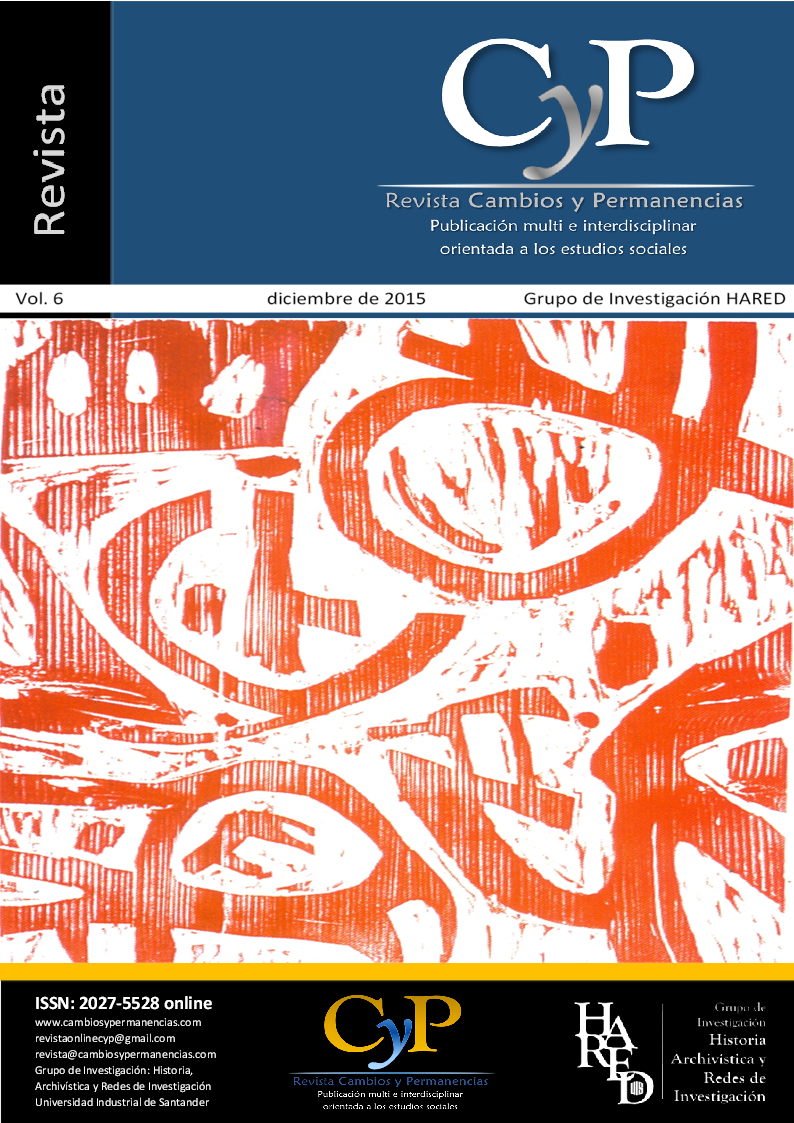Artículos
Daydream of Modernity: Self-destruction of a brave new world ¿Is there an alternative?
Keywords
- Deveploment,
- Happiness,
- Reason,
- Self-destruction,
- Alternative
- Good living ...More
How to Cite
Rojas Ariza, Y. H. (2015). Daydream of Modernity: Self-destruction of a brave new world ¿Is there an alternative?. Cambios Y Permanencias, (6), 330–348. Retrieved from https://revistas.uis.edu.co/index.php/revistacyp/article/view/7102
Abstract
It is important to question the modern Happiness and interrogate the Development project. Through a Brave New World by Aldous Huxley, this text wants to highlight the question of the meaning of human existence. To understand this, three moments arise: first, the need to question the Development project; second, the emphasis on self-destruction of humanity; and third, the demarcation of good living as an alternative to modern happiness.
Downloads
Download data is not yet available.
References
Currie, L. (1965). La enseñanza de la economía en Colombia. Bogotá: Tercer Mundo.
Escobar, A. (1996). La invención del tercer mundo. Construcción y deconstrucción del desarrollo. Bogotá: Norma.
Foucault, M. (2007). El nacimiento de la biopolítica. Curso en el Collège de France (1978-1979). Buenos Aires: Fondo de Cultura Económica.
Foucault, M. (1991). El sujeto y el poder. Bogotá: Carpe Diem Ediciones.
Georgescu, N. (1996). La ley de la entropía o sobre el proceso económico. Madrid: Fundación Argentaria.
Hobsbawm, E. (1998). Historia del siglo XX. Buenos Aires: Crítica.
Huxley, A. (1969). Un mundo feliz. Barcelona: Orbis S.A.
Naredo J. M. (2003). Economía en evolución. Historia y perspectivas de las categorías básica del pensamiento económico. Madrid: Siglo Veintiuno Editores.
Escobar, A. (1996). La invención del tercer mundo. Construcción y deconstrucción del desarrollo. Bogotá: Norma.
Foucault, M. (2007). El nacimiento de la biopolítica. Curso en el Collège de France (1978-1979). Buenos Aires: Fondo de Cultura Económica.
Foucault, M. (1991). El sujeto y el poder. Bogotá: Carpe Diem Ediciones.
Georgescu, N. (1996). La ley de la entropía o sobre el proceso económico. Madrid: Fundación Argentaria.
Hobsbawm, E. (1998). Historia del siglo XX. Buenos Aires: Crítica.
Huxley, A. (1969). Un mundo feliz. Barcelona: Orbis S.A.
Naredo J. M. (2003). Economía en evolución. Historia y perspectivas de las categorías básica del pensamiento económico. Madrid: Siglo Veintiuno Editores.

